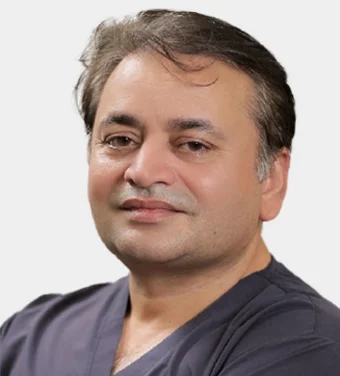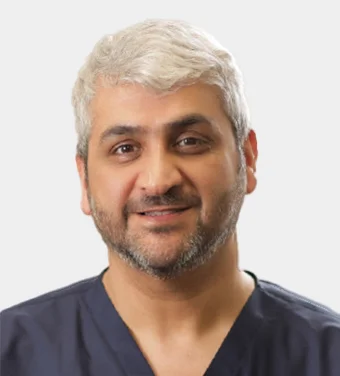
IBS Hospital specializes in the precise removal of epidermoid cysts, leveraging advanced surgical techniques. Our team prioritizes patient safety and effective outcomes, ensuring a compassionate and comprehensive treatment experience.
What is an Epidermoid Cyst?
Epidermoid Cysts, also known as epidermal cysts, are small, non-malignant bumps that develop under the skin in various areas of the body, especially on the head, face, neck, genitals, and trunk. They are generally painless and grow at a slow pace. These cysts greatly vary in size, ranging from a few millimeters to several inches. In rare cases, approximately 1%, the cysts can become cancerous.
Epidermoid Cysts can occur in people of any age group but are most common in those aged 20 to 60 years. They are very rare in children who have not yet reached puberty. Men are more likely to develop epidermoid cysts compared to women.
What are the symptoms of an Epidermoid Cyst?
The symptoms may vary depending on the location of the Tumor.
- Motor weakness
- Loss of stool and urine control
- Diplopia
- Headache
- Increased intra-cranial pressure
- Imbalance
Symptoms that suggest an epidermoid cyst has become malignant include:
- Swelling, pain, and redness.
- Rapidly growing cyst.
- A diameter of more than 5 cm.
What are the causes of an Epidermoid Cyst?
Epidermoid Cysts result from the build-up of keratin, a protein found in the skin. Keratin can become trapped due to various factors, including ingrown hair follicles, skin trauma, or underlying genetic conditions such as:
- Gardner Syndrome (Familial Colorectal Polyposis).
- Gorlin Syndrome (Basal Cell Nevus Syndrome).
- Favre-Racouchot syndrome.
Certain medications have also been linked to an increased risk of developing Epidermoid Cysts. These include:
- BRAF inhibitors
- Cyclosporine
- Imiquimod
How is an Epidermoid Cyst diagnosed?
Various modalities are used for detecting Epidermoid Cysts include:
- MRI
- CT Scan
How is an Epidermoid Cyst treated at IBS Hospital?
Some of the common treatment options available for Epidermoid Cysts are listed below:
- Injecting steroids, which helps to alleviate swelling temporarily
- Incision and drainage for draining the contents of the cyst
- Surgical excision using local anaesthesia to remove the cyst
Our team of experts that make it possible
Meet the team of highly specialised and experienced neurosurgeons, neurologists, orthopedicians, and other experts in the field of neurology and spine care. Our team is dedicated to providing personalised and compassionate care to each patient, with the goal of helping them achieve the best possible outcomes.

Dr. Vikas Gupta
Senior Neurosurgeon

Dr. Dewaker Sharma
Senior Neurosurgeon

Dr. Sachin Kandhari
Senior Neurosurgeon

Dr. Anup Gogoi
Senior Neurosurgeon

Dr. Ankur Dhandha
Anaesthetist

Dr. Gaurav Sharma
Senior Sports Physiotherapist

Dr. Sachin Samuel
Senior Neuro Physiotherapist

Dr Ankush Arora
Anaesthetist

Dr Amarjyoti Yadav
Anaesthetist
IBS Hospital Empowers Your Treatment with Cutting-edge Technology
We continuously incorporate cutting-edge technologies from around the world into our offerings, such as a surgical system that allows for precise and confident complex procedures. We use magnetic stimulation to treat certain neurological conditions and create personalised brain maps for tailored treatment plans. Nerve monitoring during surgeries ensures the nervous system is not compromised, and a robotic exoskeleton aids in mobility issues. Our goal at IBS Hospital is to provide the best care possible, utilising the latest and most innovative technologies available.


